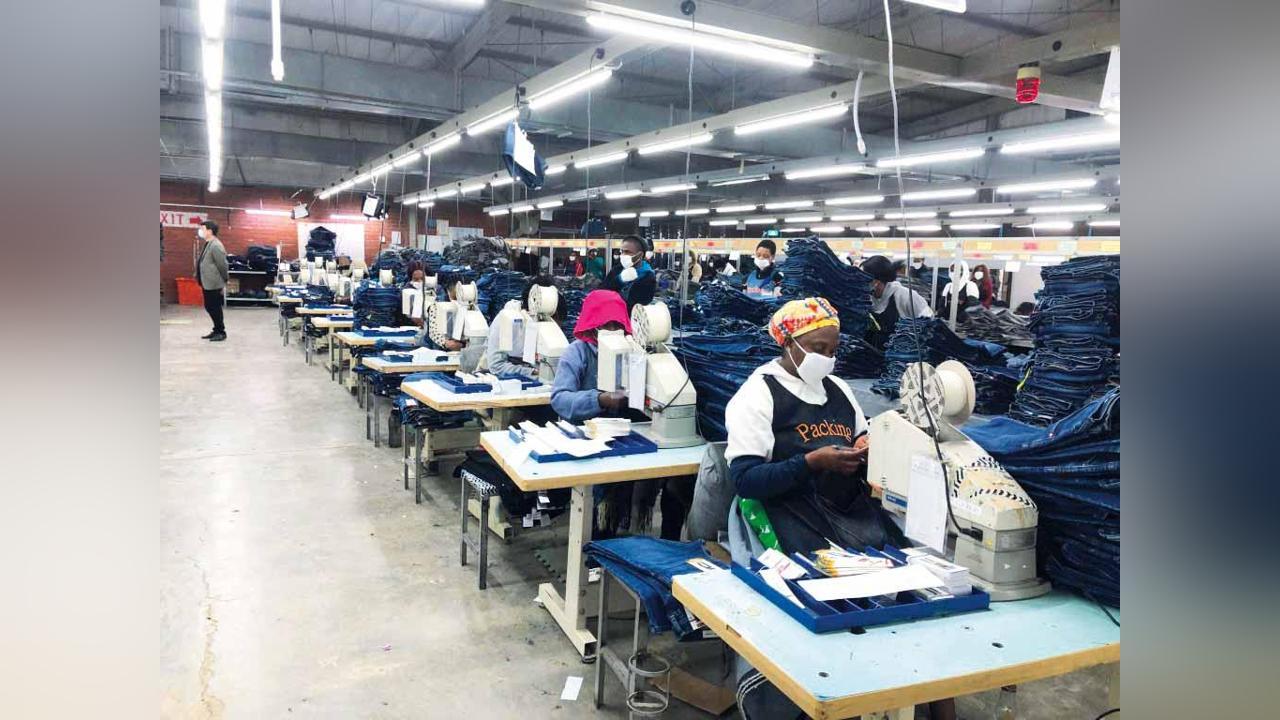Africa-Press – Lesotho. THE crisis in the textile sector has triggered a stampede by foreign-owned companies to sell off their assets as they get ready to leave Lesotho. An investigation by thepost has revealed that at least three textile companies have been trying to sell their factory buildings and other assets for the past six months.
The buildings being offered to investors are those built by the companies on 99-year leases from the Lesotho National Development Corporation (LNDC). Nien Hsing, the biggest textile company in Lesotho by both production and staff, is allegedly looking for buyers for its C &Y Garments factory it closed in 2021.
thepost can reveal that Nien Hsing has valued C &Y Garments, based in the Ha Tikoe Industrial area, at about M200 million. The buildings and other immovable properties are valued at about M160 million, according to insiders familiar with C &Y’s financials.
Immovable properties, which are predominantly sewing machines, are valued at about M35 million. Industry insiders are however sceptical that those assets are worth that much.
They are also doubtful there could be many investors who might be enticed to cough up those amounts for a company in a sector in crisis. At least two investors told thepost that they backed out of negotiations after seeing the valuation and hearing Nien Hsing’s payment terms.
“The buildings are not in the best shape and the immovable property has lost so much value that it needs to be replaced,” said one of the investors. Potential buyers are also spooked by the lease agreements for the land occupied by the buildings.
thepost has seen a lease, which is the industry standard for factories built by companies, which says the land should be used for the “manufacture of clothing and no other purposes in the absence of a written consent from the sub-lessor”.
So while some investors might be interested in the land, they are not certain they will be allowed to demolish factory buildings and build something else.
The investors warn that even if it’s possible to change the land-use clause of the leases the government might be concerned about the optics of allowing a factory that employed a few thousands to be replaced by say a mall creating a few dozen jobs.
“That will be tantamount to building a shop on the graves of thousands of textile jobs,” said one of the investors.
Although the government still believes the textile sector could be saved from what seems to be an impending implosion, existing and potential investors are not convinced.
They said given the crisis in the textile sector, it is highly unlikely that investors might be willing to buy companies such as C &Y and others on the market with plans to revive their operations.
This, they said, is because the sector has been in the doldrums for years and there doesn’t seem to be a cogent government strategy to resuscitate it.
The sector has been losing both jobs and investment over the past three years. The Independent Democratic Unions of Lesotho (IDUL), a trade union, estimates that 12 000 factory workers have lost their jobs in the past 12 months.
Other unions say the number could be higher and some factory owners privately say more job cuts are on the way unless their order books improve. The disinvestment in the sector has been unrelenting.
Glory Textiles collapsed three years ago. C &Y shut its doors in 2021 as did two other factories in Maputsoe last year. Many are contemplating either closing altogether or cutting more jobs.
Textile factory owners blame the Covid-19 pandemic, the slowdown in the global economy, escalating energy prices and the Russia-Ukraine war for their woes.
The uncertainty over the renewal of AGOA which expires next year has also scared them and those that might want to come in. Yet even if AGOA is renewed, its duty concessions might not give Lesotho companies much advantage against companies in other countries.
Lesotho is competing with companies in countries that are closer to ports, offer huge incentives and have built strong synergies in their textiles. On the other hand, production costs in Lesotho have galloped.
Lesotho no longer enjoys the advantage of low wages since the previous government railroaded the M2 020 minimum wage in 2020. That increase burdened textile companies with huge wage costs and severance pay obligations they say are unsustainable.
At the same time, the companies have had to contend with a surge in power and transport costs. Those overheads have soared as incentives for textile companies have dried up.
The Duty Credit Certificates (DCC), through which companies used to generate some revenues, have been stopped and are unlikely to return despite continued lobbying from the textile owners.
The perennial inefficiencies at the border still hamper their import of raw materials and export of goods, delaying their production and deliveries to customers.
Because the chances of selling off their assets and leaving to other private investment destinations are limited, textile companies are now lobbying the government for incentives.
Unions too are pushing for government interventions. May Rakhatane, the secretary general of IDUL, says they are proposing that the government buys and revives the closed companies.
“We don’t believe the explanations that the companies are giving for closing down their factories. That is why we are suggesting that the government takes over the companies,” May said this week.
The lease agreements give the government the first option to buy factory buildings and improvements when the owner wants out. But given the eye-watering valuations, it might cost the government billions to buy the factories.
Such prices are also likely to entice other factory owners to cash in and leave because of the low margins and the problems in the sector make it more lucrative to sell instead of continuing with the struggle for survival.
Yet a change in ownership will not resolve the fundamental problems in the sector. Lesotho will still lack competitive advantages against other countries.
After buying the factories the government will also have to spend more to replace the largely obsolete machines, most of which are said to be decades old.
Also, there is no guarantee that the order books will be full anytime soon. The global economic challenges that the current owners are moaning about might be here for long.
And although the nationalisation of the textile firms might be a tempting proposition for unions, the history of state-owned companies is replete with carcasses of failed companies.
For More News And Analysis About Lesotho Follow Africa-Press






